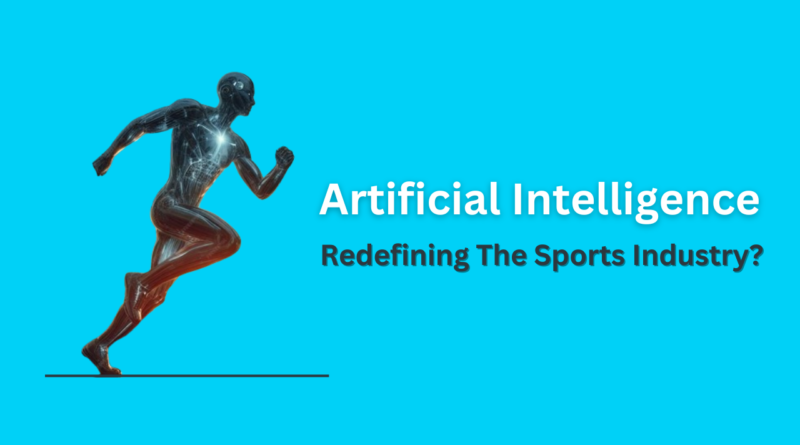How is Artificial Intelligence Redefining Sports Industry
Artificial Intelligence has transpired through sports, transforming the excitement to tranquility. The outcome seems more organized, precise and accurate.
AI is increasingly being used in outdoor and indoor sports, helping players, coaches and trainers identify shots, catches, balling, batting, fielding, pace, swing and spin. It is inbuilt in the electronic gear that sports people wear. It helps field umpires make better decisions. Infrared technology detects sound, friction, heat produced when the ball strikes the bat. A 3D image is being prepared that helps officials track the movement in real time.
AI generated NPCs offer advice, guidance, or challenge them. AI detects and prevents cheats in (1) multiplayer games, (2) generating game content, (3) testing and (4) debugging applications, and (5) analyzing and protecting users’ data.
Applications and Use Cases of Sports with Artificial Intelligence
- AI analyzes player performance, predict potential risks, and creates customized training plans. to generate Event Tickets quickly;
- AI analyzes player stats, injury history, and disciplinary records to predict performance and prevent injuries.
- AI uses machine learning to create customized meal and exercise plans for players.
- Strategic decision-making with AI enabled tools coaches and athletes to make informed choices, improve performance and achieve their goals.
- AI suggests ticket purchases, offers discounts, and find parking.
- AI identifies patterns, such as player strengths and weaknesses, speed, acceleration, and changes in technique.
- AI increases engagement, or deliver answers to questions about the game in the form of data, visualizations, and video playlists.
- AI creates virtual reality environments for training and player development.
- AI propels human motion sensing, tracking using video sequences, and determining a swimmer’s performance below water.
- AI algorithms analyzes a player’s throwing motion to identify areas where they might be putting too much stress on their arm.
Application in Major Sports Leagues
By using AI enabled sports equipment’s The National Basketball Association (NBA) and The National Football League (NFL) have improved player performance.
| Injury prevention Fan engagement Player performance Recruitment AI in sports journalism Ticketing AI referee Performance analysis Personalized Training and diet plans Real-time decision making Automation AI score prediction | Advertising AI augmented coaching Assisting referee Broadcasting and streaming Enhancing athletic performance Game analytics Education and training Game analysis Mathematical optimization Sports analytics Biomechanics |
AI Applications in Sports Business
Machine learning algorithms evaluates players’ skills, ranking them in various criteria. Blockchain Smart contract automates payment terms, performance incentives, and royalty distribution for people in sports.
Video analysis, biomechanical assessment powered by AI simulations are enhancing training experiences by facilitating data-driven decision-making for coaches and athletes.
AI companies are developing apps to predict ticket sales by analyzing factors such as opponent strength and historical attendances, providing valuable insights for ticket pricing. Artificial Intelligence enables targeted advertising, enhances transparency and security for people inside the stadium.
AI-powered chatbots provide personalized engagement, analysis of social media campaigns to drive engagement, and smart controls for better pay outs to avoid delays or disputes.
Artificial Intelligence improves player performance and strategic decision-making, smart monitoring systems assists players monitor metrics and prevent injuries.
AI-powered neurofeedback is about curating recovery programs for athletes. By harnessing the power of AI, athletes can fine-tune their mental states to achieve peak performance and bounce back stronger.
So, how does AI impact athlete performance?
AI enables real-time analysis, pinpointing areas for improvement and offering immediate feedback. It brings a plethora of benefits: swift decision-making, enhanced security in the arena, preemptive detection of potential issues, personalized performance enhancement strategies, heightened speed, and accuracy, enriched fan engagement, educational opportunities, smart wearables, and sophisticated video-based game analytics.
What does the future hold for Artificial Intelligence in sports?
AI in sports strikes a delicate balance between innovation and upholding the essence of the game, simultaneously addressing concerns surrounding privacy. According to Medium and Allied Market Research, the sporting industry features a projected Compound Annual Growth Rate (CAGR) of 30%, soaring to a whopping $19.2 billion by 2030, all thanks to the transformative power of AI.
According to imaginovation.net, the AI segment in the sports industry is expected to reach a value of $19.2 billion by 2030. Sports is gradually catching up with AI development companies and vice versa.
We are living in times where robots report games and redefine media presence. AI is now capable of relaying every minute of ongoing play on the field to boost audience engagement. It predicts opponent’s next moves, and improves strategy development by utilizing AR and VR to increase fan interaction.
Sports AI Market is growing exponentially due to an increase in the demand for player observation and tracking. Reaching for the skies it is estimating $19.9 billion by the end of 2030.
Best of all, AI reduces or completely prevents unethical practices, unfair competition, and adverse impacts.

